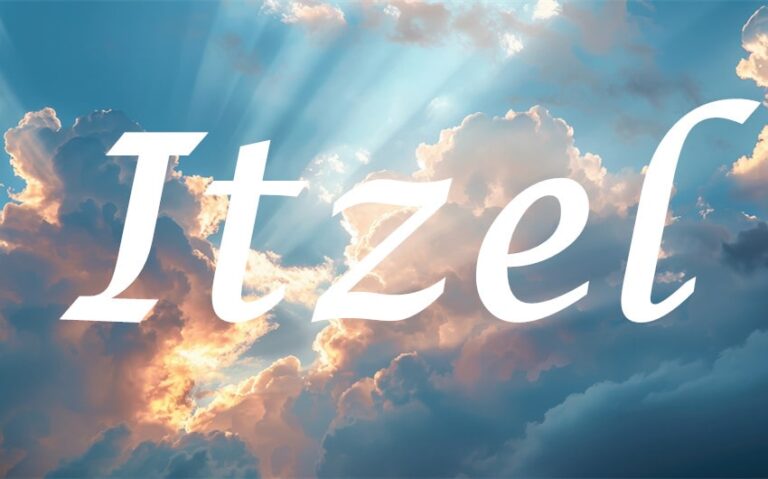70+ Regal Names Meaning Prince and Their Noble Origins Across Cultures
The name meaning prince has long captured hearts across cultures for its association with grace, power, and noble destiny. Whether you think of royal heirs, mythic heroes, or spiritual leaders, the title “prince” symbolizes honor, strength, and inherited purpose. It represents not only a position of authority but also a commitment to protect, lead, and inspire. Around the world, names meaning prince have emerged in many languages, each reflecting its culture’s view of leadership and dignity. In this article, you’ll discover several major categories of names meaning prince, along with their origins and meanings—each one a reflection of noble character and timeless prestige.
Names That Literally Mean Prince or Ruler
Names that literally mean “prince,” “ruler,” or “leader” have appeared throughout human history, often tied to royal titles or noble bloodlines. These names are direct in their meaning and convey authority, command, and the right to lead. They often appear in Arabic, Persian, Indian, and European traditions, showing that the concept of princely leadership transcends language and geography.
-
Amir (Arabic) – Means “prince” or “commander.” Common throughout the Middle East and South Asia.
-
Emir (Arabic/Turkish) – Variant of Amir; denotes a ruler or noble leader.
-
Malik (Arabic) – Means “king” or “sovereign,” expressing royal authority.
-
Rajkumar (Sanskrit/Hindi) – Literally translates to “prince” or “king’s son.”
-
Raja (Sanskrit/Hindi) – Means “king,” often used as a respectful royal title.
-
Shahzada (Persian/Urdu) – Means “son of the king,” equivalent to “prince.”
-
Sar (Hebrew/Aramaic) – Translates as “chief” or “prince.”
-
Knyaz (Slavic) – Title meaning “prince” or “noble ruler.”
-
Seigneur (Old French) – Means “lord” or “nobleman.”
-
Tzar (Slavic/Russian) – Means “emperor” or “sovereign ruler.”
-
Mirza (Persian/Urdu) – Derived from “Amir Zadeh,” meaning “son of a prince.”
-
Nawab (Arabic/Urdu) – A noble title used for high-ranking leaders in South Asia.
-
Basel (Arabic) – Means “brave” or “noble,” often used as a royal epithet.
-
Prince (English) – Directly refers to a royal son or heir apparent.
-
Duke (English) – Noble title meaning “leader” or “ruler.”
-
Reza (Persian) – Means “content” or “approved,” historically borne by royal descendants.
-
Vikram (Sanskrit) – Means “valor” or “prowess,” a royal name of kings and princes.
-
Amarendra (Sanskrit) – Means “immortal ruler” or “prince among gods.”
-
Ebrahim (Arabic/Hebrew) – Means “father of nations,” a title used in royal lineages.
-
Sultan (Arabic) – Means “ruler” or “sovereign authority.”
These names are timeless and powerful, emphasizing rightful leadership, courage, and noble heritage.
Names with Royal or Noble Connotations
Some names don’t directly translate to “prince,” but they carry strong royal or aristocratic associations. These names often belonged to kings, rulers, and legendary heroes, symbolizing leadership, integrity, and wisdom. They express nobility of spirit rather than title—perfect for someone meant to lead with heart and vision.
-
Alexander (Greek) – Means “defender of men,” borne by Alexander the Great.
-
Basil (Greek) – Means “royal” or “kingly.”
-
Rex (Latin) – Means “king.”
-
Royce (English) – Derived from “roy,” meaning “royal.”
-
Eric (Old Norse) – Means “eternal ruler.”
-
Frederick (Germanic) – “Peaceful ruler.”
-
Henry (Germanic) – Means “ruler of the household.”
-
Louis (French) – Means “renowned warrior,” name of many French kings.
-
Stephen (Greek) – Means “crown” or “honor.”
-
Charles (Germanic) – Means “free man,” often used for royalty.
-
Harold (Old English) – Means “leader of the army.”
-
Arthur (Celtic) – Associated with King Arthur, symbol of noble leadership.
-
Philip (Greek) – Means “lover of horses,” often used in royal dynasties.
-
Richard (Germanic) – Means “powerful ruler.”
-
William (Germanic) – Means “resolute protector,” name of many kings.
-
Alaric (Germanic) – Means “ruler of all.”
-
Leo (Latin) – Means “lion,” symbolizing courage and kingship.
-
Augustus (Latin) – Means “majestic” or “venerable,” used for Roman emperors.
-
Sigmund (Old Norse) – Means “victorious protector.”
-
Kingston (English) – Means “king’s town,” symbolizing nobility and legacy.
These names connect you to a long history of leadership and grace, making them ideal for those who carry a sense of purpose and poise.
Names from Mythology and Legend Linked to Princes
Throughout mythology, princes have been central figures—heroes, saviors, and seekers of truth. These names come from ancient legends, representing courage, destiny, and divine purpose. They are powerful because they reflect not only royalty but also moral strength and spiritual depth.
-
Arjun (Sanskrit) – The heroic prince from the Mahabharata, symbolizing virtue and focus.
-
Paris (Greek) – The Trojan prince from the Iliad, known for love and fate.
-
Siddhartha (Sanskrit) – The birth name of Buddha, meaning “he who achieves his goal.”
-
Theseus (Greek) – Prince and hero who became king of Athens.
-
Krishna (Sanskrit) – Divine hero often depicted as a princely figure.
-
Hector (Greek) – Trojan prince known for courage and loyalty.
-
Rama (Sanskrit) – The prince and hero of the Ramayana, symbolizing duty and righteousness.
-
Perseus (Greek) – Mythic prince who defeated Medusa and saved Andromeda.
-
Aeneas (Roman) – Trojan prince and founder of the Roman race in legend.
-
Jason (Greek) – Leader of the Argonauts, a noble hero-figure.
-
Gautama (Sanskrit) – Another name for Siddhartha, denoting spiritual royalty.
-
Narasimha (Sanskrit) – Incarnation of Vishnu, symbolizing divine protection.
-
Triton (Greek) – Prince of the sea, son of Poseidon.
-
Icarus (Greek) – A mythic youth symbolizing ambition and aspiration.
-
Achilles (Greek) – Hero of the Iliad, noble in birth and purpose.
-
Telemachus (Greek) – Son of Odysseus, known for loyalty and growth.
-
Bharata (Sanskrit) – Brother of Rama, symbolizing devotion and integrity.
-
Odysseus (Greek) – King and hero of Ithaca, known for intelligence and endurance.
-
Nanda (Sanskrit) – Name of a royal clan in ancient India.
-
Thor (Norse) – Son of Odin, prince of Asgard, symbol of strength and honor.
Each of these names reflects the courage, wisdom, and destiny associated with princes in myth—leaders who balance power with virtue.
Names Meaning Prince in Different Languages
Names that mean “prince” in other languages reveal how deeply cultures value nobility and leadership. These names are direct translations or linguistic variations, showing how universal the idea of princely virtue truly is.
-
Amiri (Swahili/Arabic) – Means “royal” or “belonging to a prince.”
-
Principe (Italian/Spanish) – Means “prince.”
-
Prinz (German) – Means “prince.”
-
Rajiv (Hindi) – Derived from “raja,” meaning “royal.”
-
Naresh (Sanskrit) – Means “lord” or “ruler of men.”
-
Anwar (Arabic) – Means “radiant” or “illustrious,” often used in noble lineages.
-
Dom (Portuguese) – Noble title meaning “lord.”
-
Reuven (Hebrew) – Means “behold, a son,” symbolizing leadership through lineage.
-
Tianzi (Chinese) – Means “son of heaven,” ancient title for the emperor.
-
Khalid (Arabic) – Means “eternal,” used by royal families as a name of prestige.
-
Rajendra (Sanskrit) – Means “king of kings.”
-
Balthazar (Babylonian/Hebrew) – Means “God protects the king.”
-
Cesar (Latin) – Title meaning “ruler” or “emperor.”
-
Faisal (Arabic) – Means “decisive” or “arbiter,” often borne by princes.
-
Harun (Arabic) – Refers to Aaron, often associated with wisdom and leadership.
-
Omar (Arabic) – Means “flourishing” or “long-lived,” used by royal dynasties.
-
Leopold (Germanic) – Means “brave people,” borne by European princes.
-
Lucien (French) – Derived from “light,” symbolizing noble enlightenment.
-
Rajesh (Sanskrit) – Means “lord of kings,” an exalted royal title.
These global names show that the princely archetype exists in every language, uniting cultures under the shared admiration for leadership, wisdom, and honor.







